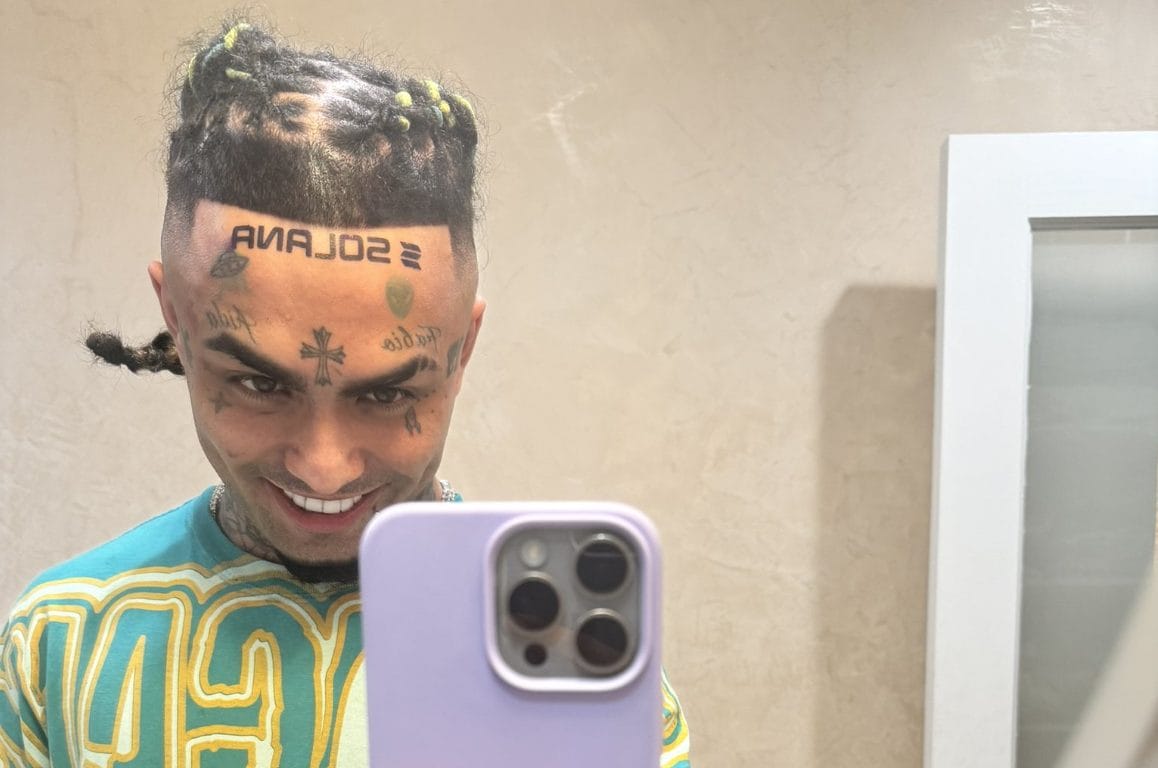Lil Pump, the popular American rapper, recently sparked controversy after getting a new tattoo of the blockchain platform Solana. The tattoo was intended to promote the meme coin LILPUMP, which saw a significant surge in value following the announcement. However, the move has received mixed reactions from fans and critics alike, with some expressing discontent and questioning the authenticity of the tattoo. Despite the backlash, many are interpreting Lil Pump’s actions as an attempt to capitalize on the current trend of celebrity-backed cryptocurrencies.
The rise of celebrity-backed cryptocurrencies has seen several high-profile figures launching their own tokens in recent months. While some projects initially experienced gains, many have since faced significant declines in value. Tokens associated with celebrities such as Caitlyn Jenner, Floyd Mayweather, and several rappers have plummeted by as much as 90%. Ethereum co-founder Vitalik Buterin has also criticized the trend, calling for more meaningful and impactful projects in the cryptocurrency space.
In a recent development, controversial social media figure Andrew Tate promoted a Solana-based memecoin called Daddy Tate (DADDY), which faced insider trading accusations. Crypto analytics firm Bubblemaps highlighted significant insider activity surrounding the token, alleging that a group of wallets bought a large portion of the token’s supply before Tate’s promotion. Similar allegations were made against another celebrity-backed token, MOTHER, associated with Iggy Azalea, further underscoring the challenges and controversies surrounding celebrity-backed memecoins.
Despite the ongoing issues and criticisms surrounding celebrity-backed cryptocurrencies, many celebrities continue to launch their own tokens, attempting to leverage their fame for financial gain. However, the volatile nature of the cryptocurrency market and the prevalence of scams and insider trading allegations have cast a shadow over these projects. With the trend showing signs of decline and skepticism from industry experts, it remains to be seen how sustainable and legitimate celebrity-backed memecoins will be in the long run.
Lil Pump’s recent tattoo of the Solana logo and his promotion of the meme coin LILPUMP reflect the growing trend of celebrities associating themselves with cryptocurrencies for financial gain. While these projects have attracted attention and investment from fans eager to support their favorite stars, they have also faced significant challenges and controversies. The surge in celebrity-backed memecoins has been met with skepticism and criticism from industry experts, with concerns about insider trading, rug pulls, and the overall lack of substance in these projects.
As the cryptocurrency market continues to evolve and mature, the need for more meaningful and impactful projects becomes increasingly apparent. While celebrities may have the influence and reach to promote cryptocurrencies, the long-term success and value of these projects ultimately depend on factors such as utility, innovation, and transparency. As the hype surrounding celebrity-backed memecoins subsides and the industry shifts towards more legitimate and sustainable projects, the fate of these tokens and their associated celebrities remains uncertain.





















